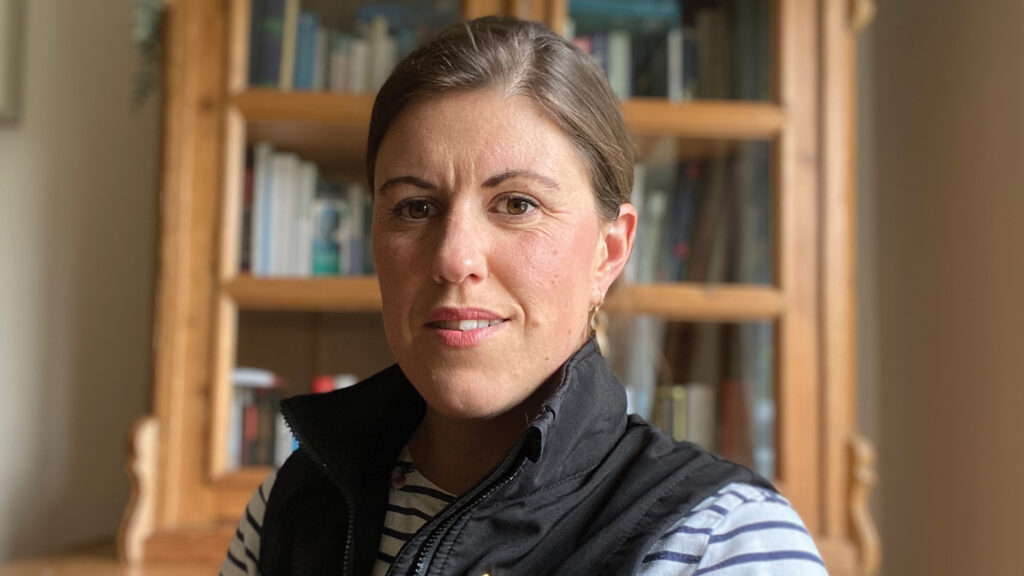Farmer on mission to raise awareness of neurodiversity in ag
 Liz Haines © Nuffield Scholarship
Liz Haines © Nuffield Scholarship Staffordshire dairy farmer Liz Haines is on a mission to raise awareness about neurodiversity in the agricultural community, and hopes her speaking slot at the Oxford Farming Conference (OFC) will help her do just that.
The term neurodiversity encompasses a range of neurological differences, including dyslexia, autism spectrum disorder (ASD), attention deficit hyperactivity disorder (ADHD), and more.
Some small-scale research suggests that the number of people in the farming community with neurodiverse conditions is higher than in the general population – a suspicion supported by Liz’s own Nuffield Scholarship research on the subject.
“I think this is probably true for other practical and vocational industries too,” she says.
“There’s been work done that shows that it’s common in the veterinary industry, which could be to do with people having an aptitude for working with animals.
“Or if you looked at the building trade, I suspect you’d find a lot of dyslexia there.
“These are people who don’t want to be working in 9-5 office job environments, doing lots of computer work or reading and writing. It’s the same with farming – it suits the types of skills neurodivergent people have.”
As an English Literature graduate, Liz’s route into the industry was quite unusual, despite coming from a farming family.
After leaving university, she worked for a publisher that specialised in books on autism and special educational needs.
Later, she worked for another publisher that specialised in speech and language therapy, where there is an overlap with autism, before leaving to farm with her husband.
“We’ve been farming for maybe 12 years now,” she says.
“When employing people in our business, we’ve come across lots of people with dyslexia and ADHD, but we’ve not really known how we should be tailoring things for them.”
It was at this point that Liz began to look again at her own family, and realised her grandfather, who was also a dairy farmer, was “almost certainly autistic.”
“Dairy farming probably hid the fact he was autistic in a way, because he lived a very regimented life, quite isolated, and was not very sociable,” she says.
Shortly afterwards, Liz herself was diagnosed with ADHD – which she describes as a “light bulb moment.”
“I’ve known about Nuffield for a number of years and been interested in doing it, but never quite had a topic that really clicked.
“After getting my ADHD diagnosis, I knew this was it, and that I could bring together the interest I’ve always had in neurodiversity and my personal experience to create something quite powerful.”
Since studying for the scholarship, Liz has found there is a lot of awareness that neurodiversity is common in farming, but no one really knows what to do with the information.
She points to the fact that an industry which typically provided respite to those with neurodiverse conditions can now throw up challenges, with farmers now expected to complete significant amounts of paperwork on everything from antibiotics use to grant applications.
“Fifty years ago this wasn’t an issue and you could just be outdoors doing your practical work, working with your animals, working with your machinery,” she says.
“But as the job has become more complex, people need a different kind of support.”
Liz remains optimistic, however, that solutions to these problems can be found using new technology, such as artificial intelligence tools.
But she also believes farmers can make small, simple changes to the way they communicate or present information to staff that will make a big difference – to neurotypical employees as well neurodiverse ones.
“This isn’t rocket science and it doesn’t have to cost a lot of money. Communication and clarity is really what’s at the heart of the issue,” she says.
Liz hopes that by speaking at OFC about neurodiversity, she can kick-start these conversations on-farm.
“We need to raise awareness, and OFC will give me the platform to do that,” she says.
She will also take on responsibility for leading Farmers Weekly’s Level The Field campaign in 2025, which will focus on the subject of neurodiversity.
The campaign will be relaunched in the new year, with the results of FW’s survey on the issue published in the 3 January edition of the magazine.
“On my Nuffield journey, I’ve found the data on neurodiversity in farming – in other countries as well – has been lacking,” Liz says.
“There have been snippets of things, but this will be the first time there has been a nationwide-scale piece of research done on the topic, which is really exciting.
“Once we’ve got that evidence, it gives us a much more secure footing to demonstrate why changes are needed.”
To book your ticket to OFC, visit the conference website at ofc.org.uk/booking

